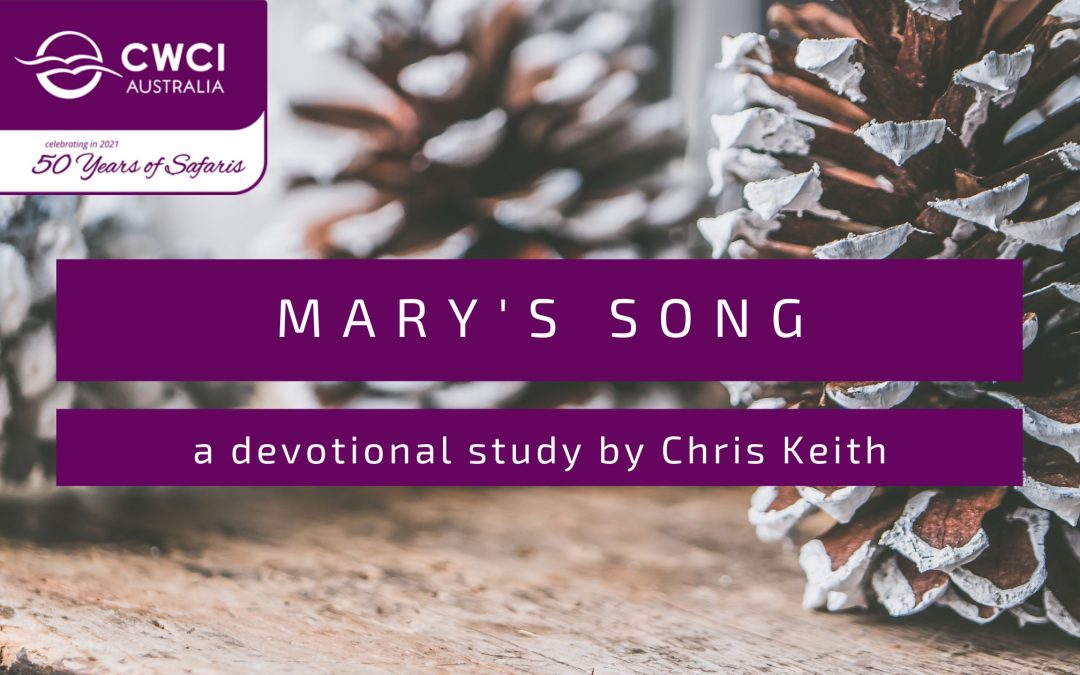Mary’s Song
Introduction
For weeks now the shops have been decorated for Christmas and Christmas music fills the air. So we hear of Rudolph and silver bells and ‘chestnuts roasting on an open fire’ as we shop. Yet the first Christmas song is rarely mentioned and most people don’t know it. But what amazing treasures are contained in this song. It is often called The Magnificat, because in Latin this is the first word of this song. Mary is magnifying the LORD. Let’s revisit her song as we once more think about the wonder of that first Christmas, when God came to earth as the baby Jesus.
Reflect
- Even though it was a long journey, why do you think Mary chose to visit her relative Elizabeth at this time? You may want to look back at Luke 1:36-37.
- Elizabeth’s baby is to be John the Baptist. What extraordinary thing happened when Mary greeted Elizabeth? (v 41). Look back at Luke 1:13-15. Why do you think what happened was significant?
- Elizabeth is an old woman and Mary is a young virgin. Both are pregnant and both pregnancies are miracles from God. From this passage what do you learn about the faith of each of these women?
The word ‘blessed’ occurs three times in this short passage. In the Bible, to be blessed means having a favour or gift bestowed on you by God. Mary is ‘blessed among women’; she is not above other women, but she has been specially chosen by God to bear His son. The child she is to bear will be blessed for He will be called the Son of the Most High. And Mary is blessed because she believes what the Lord has said will take place.
Reflect
- What is the central theme of this first part of Mary’s song of praise?
- How does Mary describe God in verse 47? Why is this important?
- Compare the way Mary speaks of God with the way she speaks about herself. What reason does she give for future generations calling her blessed?
Mary is blessed and her joy is so great that she bursts into a song of praise to God. She recognises that she is just a humble servant, and God is her Saviour. He is mighty and He is holy and she will rejoice in Him.
Reflect
- The second part of Mary’s song now shifts from what God has done for Mary, to what He has done for those who fear Him. From these verses think about some of the things that show God often works in ways that are opposite to what we expect.
- Read Genesis 12:1-3. How does Mary recognise that through Jesus, God will be fulfilling the promises He made to Abraham?
So much of Mary’s song echoes thoughts and verses from the Old Testament. It is certainly evident that Mary is thoroughly acquainted with the Scriptures that tell of all God has done and has promised to do for His people. What a great example for us to remember this Christmas!
Something to sing about
Here is a modern Christmas song: Sing We the Song of Emmanuel (Matt Boswell and Matt Papa).
Emmanuel means “God is with us.” You may like to choose some of the words from this song and make them into a prayer of praise and thanksgiving to God. Finish with the words of 2 Corinthians 9:15.


Thanks Chris for the reminder that Mary’s song is an integral part of the Christmas story even though she sang it months before her son, the promised Messiah, was born. It was her witness to what she understood God was doing in this One who was born to be the Saviour of the world – His Son.
Thanks Chris yes imagine an old lady and a young girl both pregnant. I wonder how their conversations went